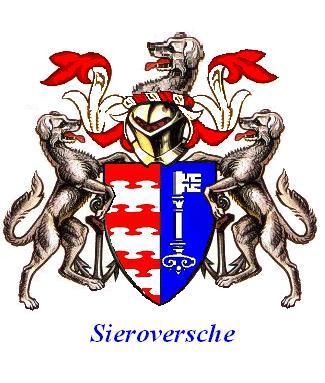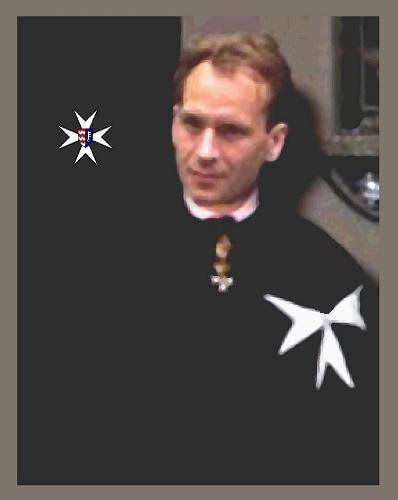 |
 |
 |
 |
 |
 |
 |
 |
 |
 |
 |
 |
 |
 |
 |
|
 |
|
|
|
Die Erbherren Zur Oweste |
|
|
|
 |
|
|
|
Sir Jan Sieroversche, Esq. St.John 2005 |
|
|
|
Although our family was already known since 1235 as the Guardians of the Church to Bramsche and received of the Bishop of Osnabruck the jurisdiction of the Bramsche territory, under the name `Zur Oweste` we find the first mentioning in written sources in the year 1351. In this year our ancestor gave his freedom up to become a vassal to the Knights of Malta on there Estate in Lage Rieste. From this time till the year 1919 they were considered to belong to the group of Gentry who were `Folk Free` (Free in the eyes of people that surrounded them) and had the honourable right to justice in the people court as alderman. Next to this they had certain freedom on taxes above other people and the hunting and fishingrights on 1 acre of there fief land. To these rights also the duty came to protect as guard the bounderygrounds of the Estate, to collect taxes, to serve as a master of the hunt for ducks and to accompany the Knights of Malta as a corporal or `fahnen~ junker` (meaning a esquire) in times of war, peace treaty or at the archers festival. After the conquerings of Napoleon, the Knights of Malta lost there territory and the `Zur Oeveste` mannor of 46 acres became a free and independent farm without some former rights. Although the family `Zur Oeveste` entered by this the social class of the free farmers in 1834, they still were allowed during the Kingdom Hanover to use there noble title `Zur` and by this they stayed considered to belong to the untitled nobility of Germany. |
|
|
| Although our family did belong to the class of the `landed gentry`, it is hard to tell if they did rank to those descendants of the knightly families of to those of the yeoman (free farmers) class. During some time and how history proofs it, you rather would consider them as those descendants of the knights but in social habits they resamble the yeoman class. Under consideration that these seperation between those two classes is an strictely English matter, the conclusion is that they belong to a certain landed gentry with resamblance to both groups. |
|
|
|
The familyname `Zur Oweste` contain two parts; first the prefix `Zur` what ment `To the` or `On the` and was a honorable prefix. Although it is an very rare prefix, it was in use by nobility like for example the Princes `Zur Lippe`. The second part of the familyname `Oweste` or `Ovest` is a very rare and old location name and could have come from the word `Ougeste` what ment literally `Harvest`, refering to a common Grain Storage. It could however have 3 other meanings. Firstly it could be the combination of the two words `Owe-Ste`, what ment a Sheep Stead or `Aue-Ste`, what ment a stead near brookland. As our ancestors had the duty to deliver two sheep after a new Commander was installed or the location of the farm near a river, it could be that one of those meanings would be the proper translation. At last there is the word `Ofste` what literally ment `Height` and as the farm is located on a hill in the landscape, it also keeps proof in this translation. As this part of our family name changed in the 18th century in `Overste` what also can be transcripted as `Chief` or `Height`, my own opinion is that our familyname should be translated as; `To (the) Height`. Namevariations of our family are; Suuroverste, Zuroweste, Zuroverste, Zuroveste, Zur Oveste, Zur Oeveste and Sieroversche. |
|
|
|
 |
|
|
|
Second page |
|
